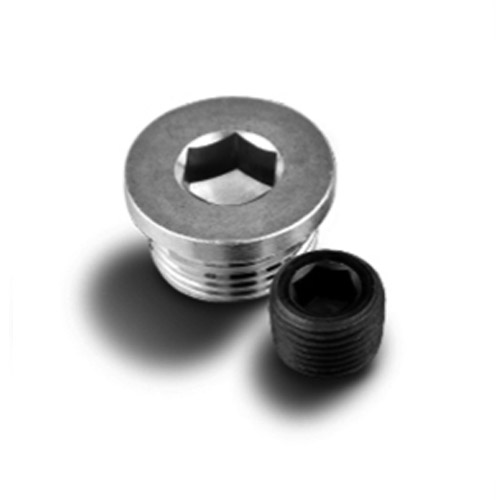

t channel bolts
Nov . 23, 2024 22:54 Back to list
t channel bolts
Understanding T-Channel Bolts A Comprehensive Overview
In the realm of mechanical engineering and construction, fasteners play a crucial role in ensuring structural integrity and reliability. Among the various types of fasteners, T-channel bolts have emerged as a versatile solution for numerous applications. This article will delve into the fundamentals of T-channel bolts, their design, applications, advantages, and considerations when selecting the right fastener for your project.
What are T-Channel Bolts?
T-channel bolts are specialized types of fasteners designed to be used in conjunction with T-channel extrusions. These extrusions are typically made of aluminum or steel, featuring a T-shaped cross-section that allows for a unique method of assembly. The bolt itself has a head that is shaped to fit snugly into the T-slot of the extrusion, providing a secure anchoring point. When the bolt is threaded into a compatible nut or component, it creates a reliable joint that can withstand various forces and loads.
Design and Features
The design of T-channel bolts is integral to their functionality. Generally, these bolts are available in a variety of sizes, lengths, and thread types, catering to specific applications and load requirements. Key features typically include
1. T-Slot Compatibility The head of the T-channel bolt is specifically designed to fit into T-slot profiles, ensuring a broad surface contact area and enhanced grip. 2. Material Selection T-channel bolts are made from a range of materials, including stainless steel, carbon steel, and aluminum, providing options for different strength and corrosion resistance levels.
3. Thread Types Depending on the application, T-channel bolts may employ various thread types, including coarse or fine threads, which influence the performance of the connection.
4. Finish Options Many T-channel bolts come with finishes such as zinc plating, anodizing, or powder coating to protect against environmental factors and enhance aesthetics.
Applications of T-Channel Bolts
The versatility of T-channel bolts makes them suitable for a wide array of applications, including
- Modular Assemblies In industries such as automation, T-channel bolts are commonly used in modular assembly systems, allowing for quick and easy reconfiguration of structures.
- Frameworks and Supports T-channel bolts provide robust connections for frameworks in machinery, workstations, and shelving systems, enabling them to bear heavy loads while maintaining structural stability.
- Enclosures They are often utilized to attach panels and enclosures in equipment housings, ensuring that components are securely held in place.
t channel bolts

- Furniture Design In contemporary furniture manufacturing, T-channel bolts are favored for their ability to create clean lines and easily adjustable connections, contributing to modular furniture pieces.
Advantages of T-Channel Bolts
The use of T-channel bolts comes with several notable advantages
1. Ease of Assembly The design allows for straightforward installation, often without the need for special tools, making them ideal for quick assembly and disassembly.
2. Adjustability The T-slot design permits easy adjustment of components, providing flexibility in design and facilitating modifications when necessary.
3. Strength and Stability T-channel bolts provide a strong connection, which can withstand significant loads, making them suitable for heavy-duty applications.
4. Corrosion Resistance When made from appropriate materials and finishes, T-channel bolts can resist corrosion and wear, extending their lifespan and reliability.
Considerations When Selecting T-Channel Bolts
When choosing T-channel bolts for a specific application, several factors should be considered
- Load Requirements Assess the load that the bolt will bear and choose one that meets or exceeds these requirements. - Material Compatibility Ensure the bolt material is compatible with the T-channel extrusion material to prevent galvanic corrosion.
- Environmental Factors Consider the environment in which the bolts will be used, such as exposure to moisture or chemicals, and select bolts with appropriate finishes.
- Thread Specifications Ensure that the thread type and size match the nuts and other components to be used in conjunction with the bolts.
In conclusion, T-channel bolts are essential components in modern engineering and construction, offering flexibility, strength, and ease of use. Understanding their design, applications, and advantages can significantly impact the efficiency and effectiveness of construction and manufacturing processes. By choosing the right T-channel bolt for your needs, you can ensure robust, reliable, and adaptable assemblies that stand the test of time.
Latest news
-
Hot Dip Galvanized Bolts-About LongZe|High Strength, Corrosion Resistance
NewsJul.30,2025
-
High-Strength Hot Dip Galvanized Bolts - Hebei Longze | Corrosion Resistance, Customization
NewsJul.30,2025
-
Hot Dip Galvanized Bolts-Hebei Longze|Corrosion Resistance&High Strength
NewsJul.30,2025
-
High-Strength Hot-Dip Galvanized Bolts-Hebei Longze|Corrosion Resistance&High Strength
NewsJul.30,2025
-
Hot Dip Galvanized Bolts-Hebei Longze|Corrosion Resistance&High Strength
NewsJul.30,2025
-
Hot Dip Galvanized Bolts - Hebei Longze | Corrosion Resistance, High Strength
NewsJul.30,2025

